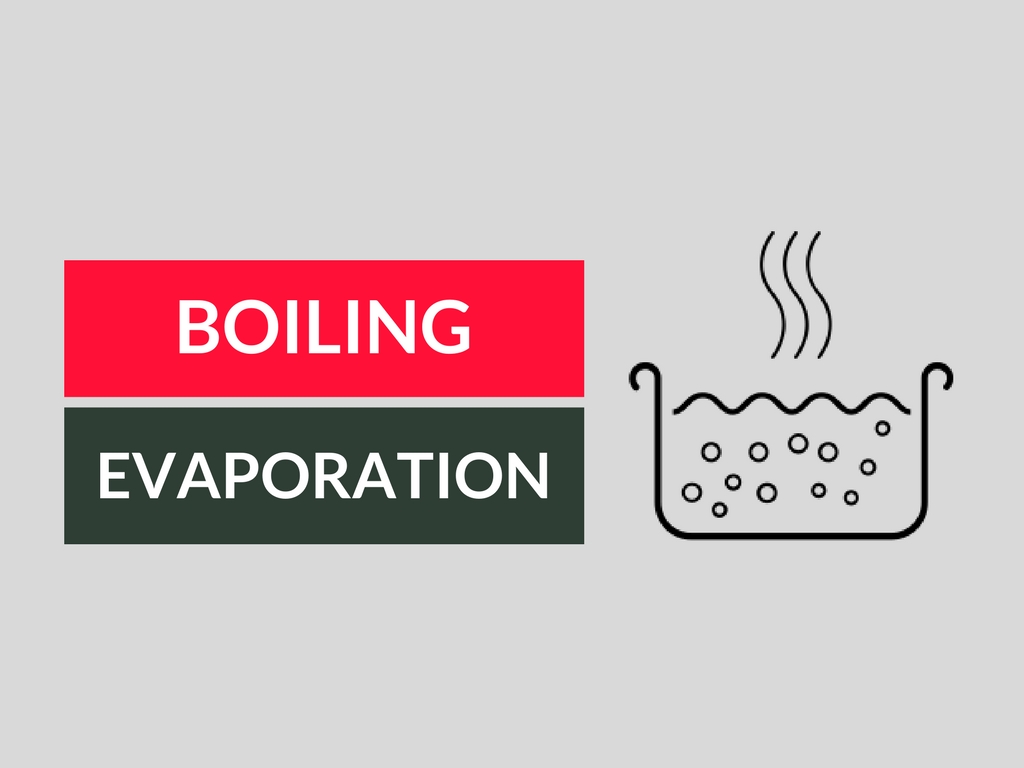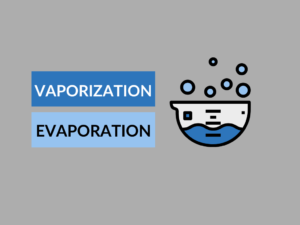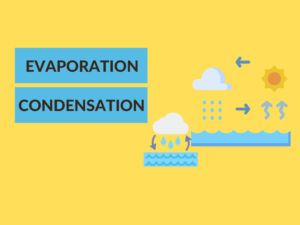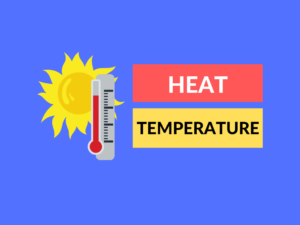Most of us feel that the boiling of liquids results in evaporation, but both Boiling and Evaporation are different in their own ways and this article mainly concentrates on analyzing the differences between Boiling and Evaporation in a detained manner.
BOILING
The term Boiling is defined as the process in which the liquid phase changes to gaseous phase at a constant temperature is called as Boiling. The point where the liquid changes into gaseous state at a given pressure and temperature is called as ‘Boiling Point’. The boiling point of the water is 100°c at normal atmospheric pressure.
EVAPORATION
The term Evaporation is defined as the process of escaping of liquid molecules from the surface of a liquid at any temperature is called evaporation. The rate of evaporation of a liquid depends on its surface area, temperature and amount of water vapour present in the surronding air.
EXAMPLE
Water present in the wet clothes gets evaporated when the wet clothes are kept in open place, exposed to air, the water molecules absorb heat from the surroundings and become evaporated, thereby leaving the clothes dry.
DIFFERENCES
Bonus Para Veren Bahis Siteleri
There are some significant differences between two processes called Boiling and Evaporation, let us see some of them in the table below.
| BOILING | EVAPORATION |
|---|---|
| Boiling is the process in which liquid phase changes into gaseous phase at a boiling point. | Evaporation is the process of escape of molecules from the free surface of liquid at any temperature. |
| TEMPERATURE | |
| The temperature of the liquid remains constant during boiling. | The temperature of liquid reduces during the evaporation. |
| NATURE | |
| The Boiling of liquid takes place at boiling point only. | The evaporation of liquid takes place at all temperatures. |
| RESULT IN | |
| Boiling results in the heat and does not cause cooling. | Evaporation results in cooling of the liquid. |
| INVOLVES | |
| Boiling involves in complete volume of liquid. | Evaporation is a surface phenomenon only. |
| BOILING AND RATE | |
| The boiling point of the water is 100°c and the temperature does not increase further even though there is continuous supply of heat. | The larger surface area offers fast evaporation of the liquid i.e. rate of evaporation depends on surface area temperature, etc. |





